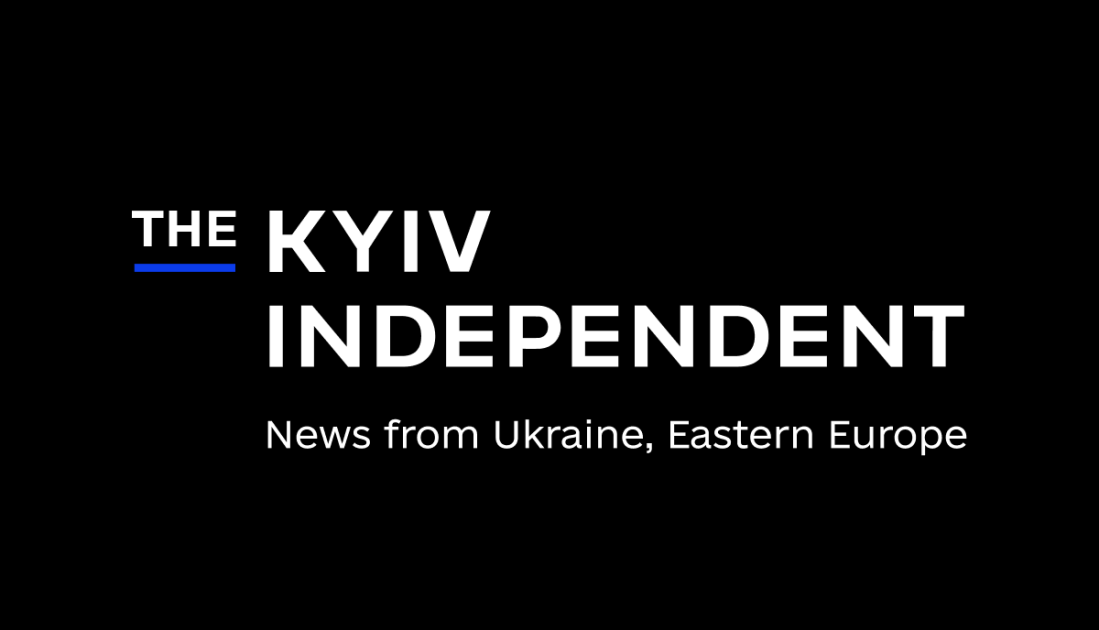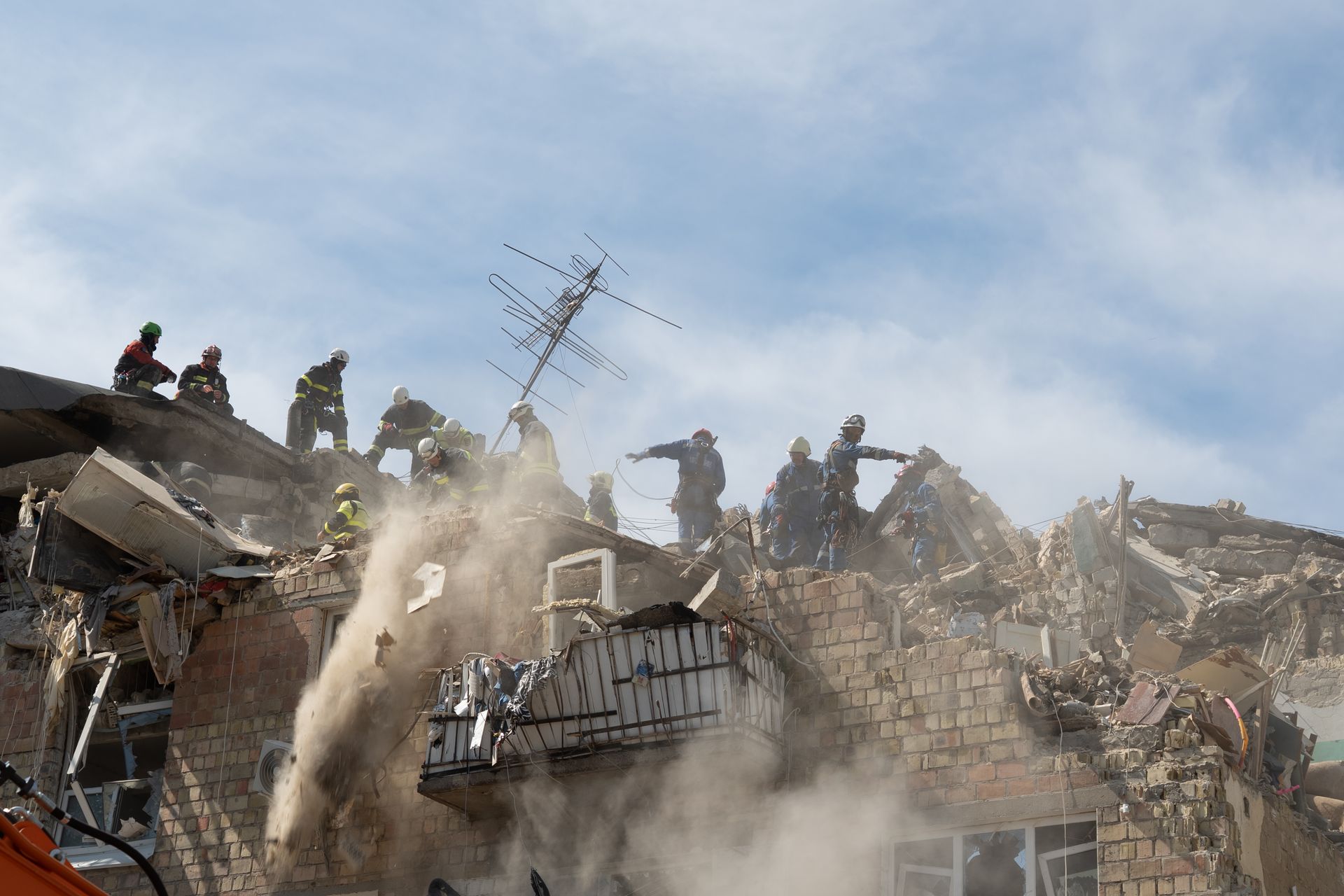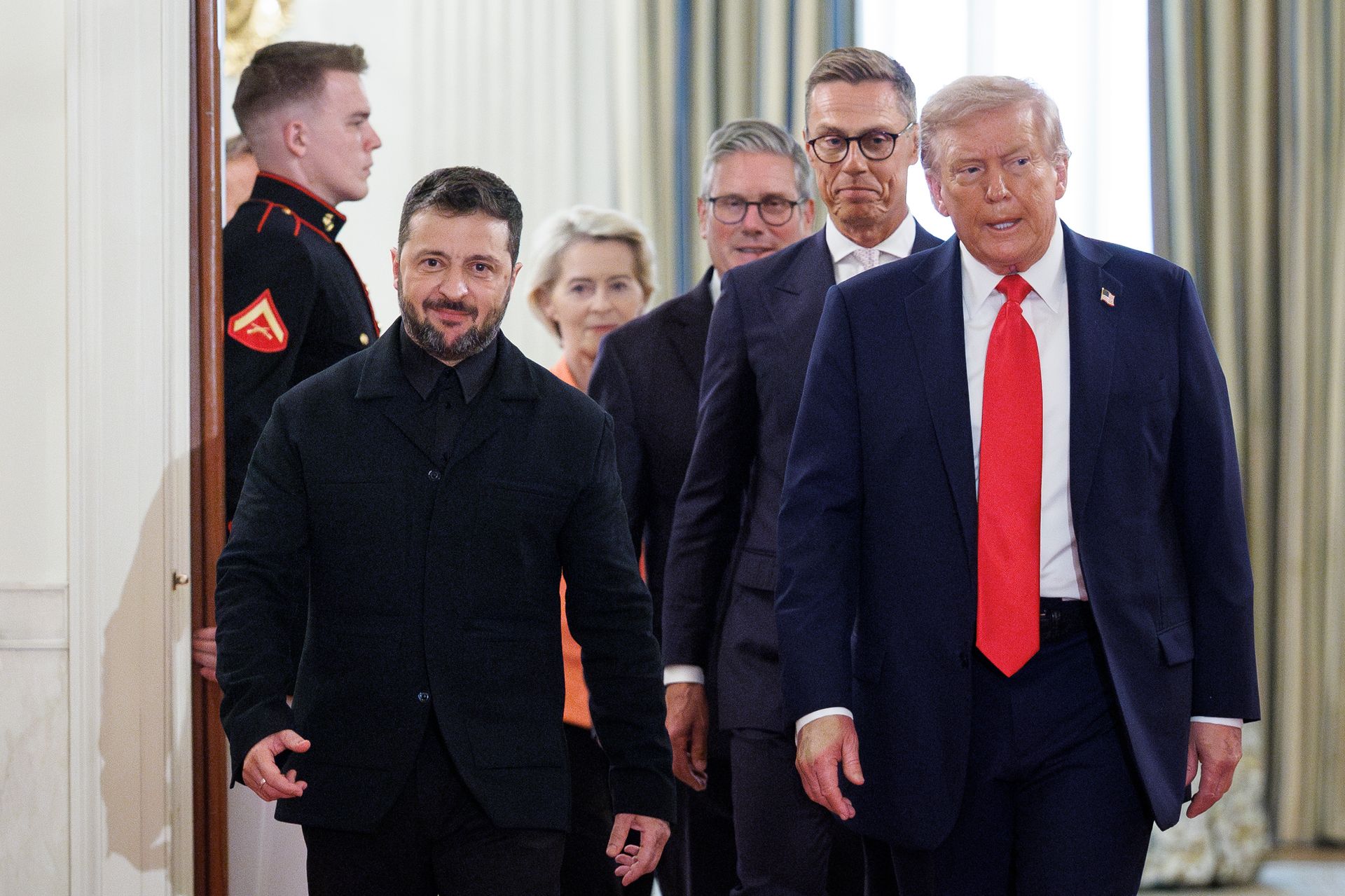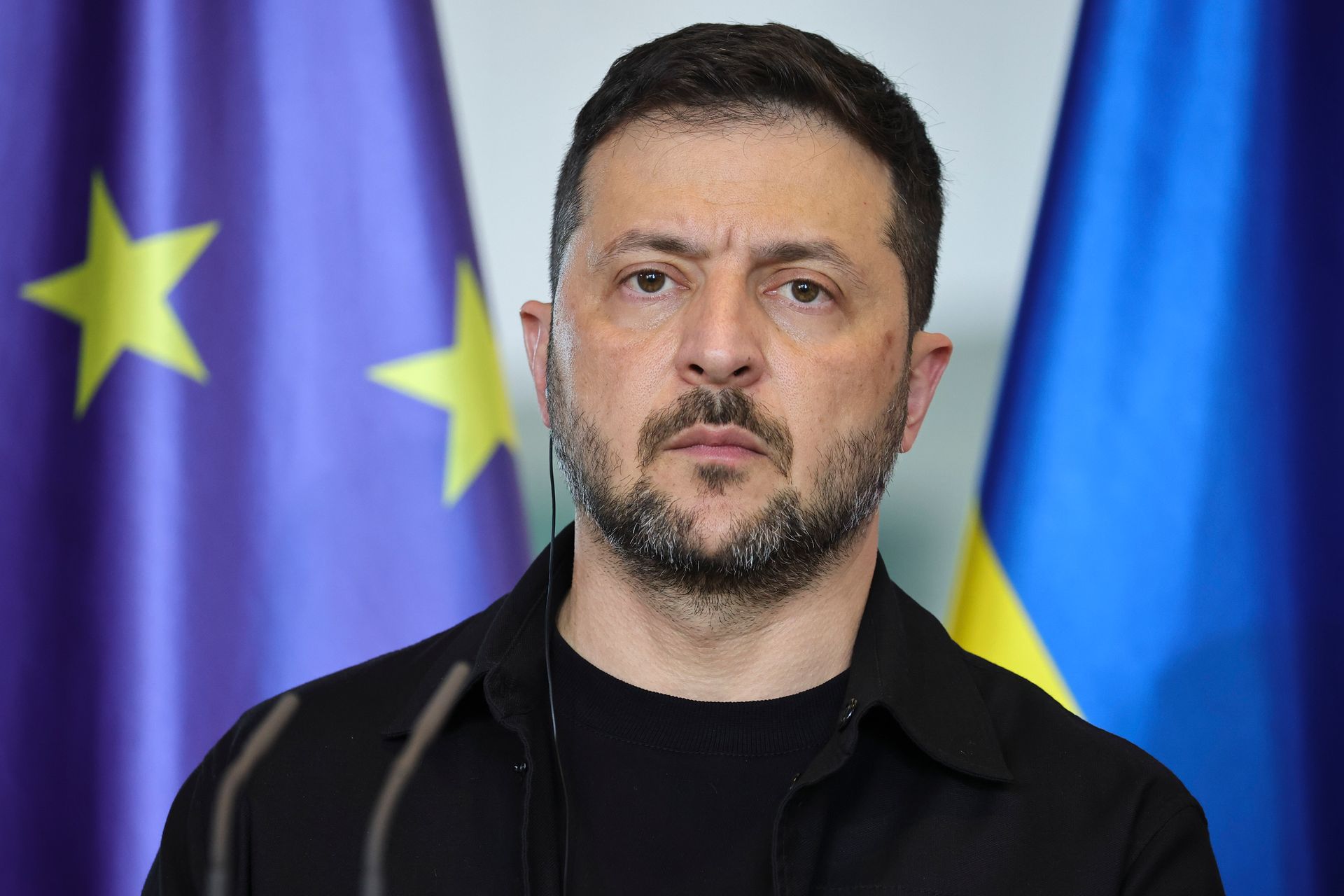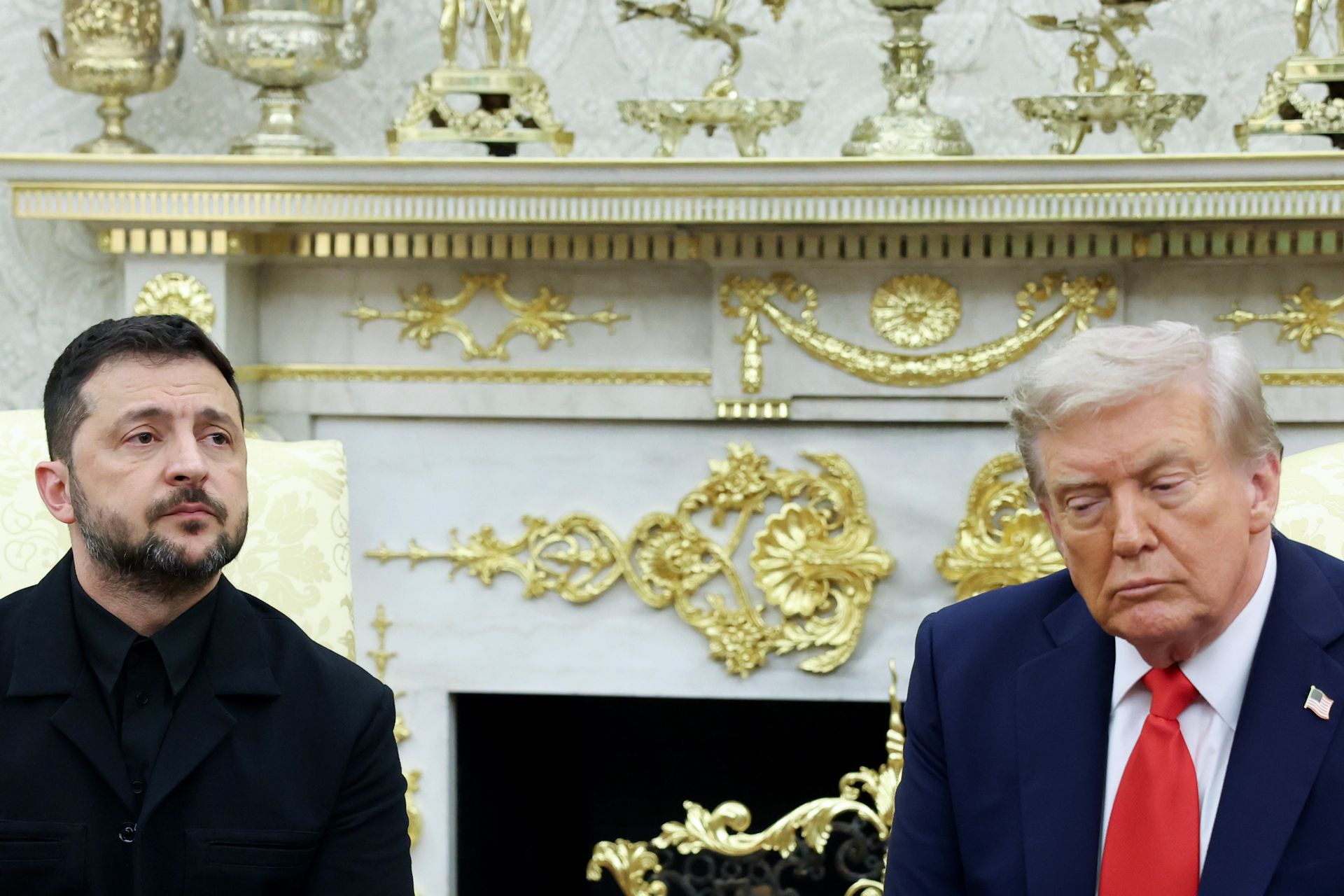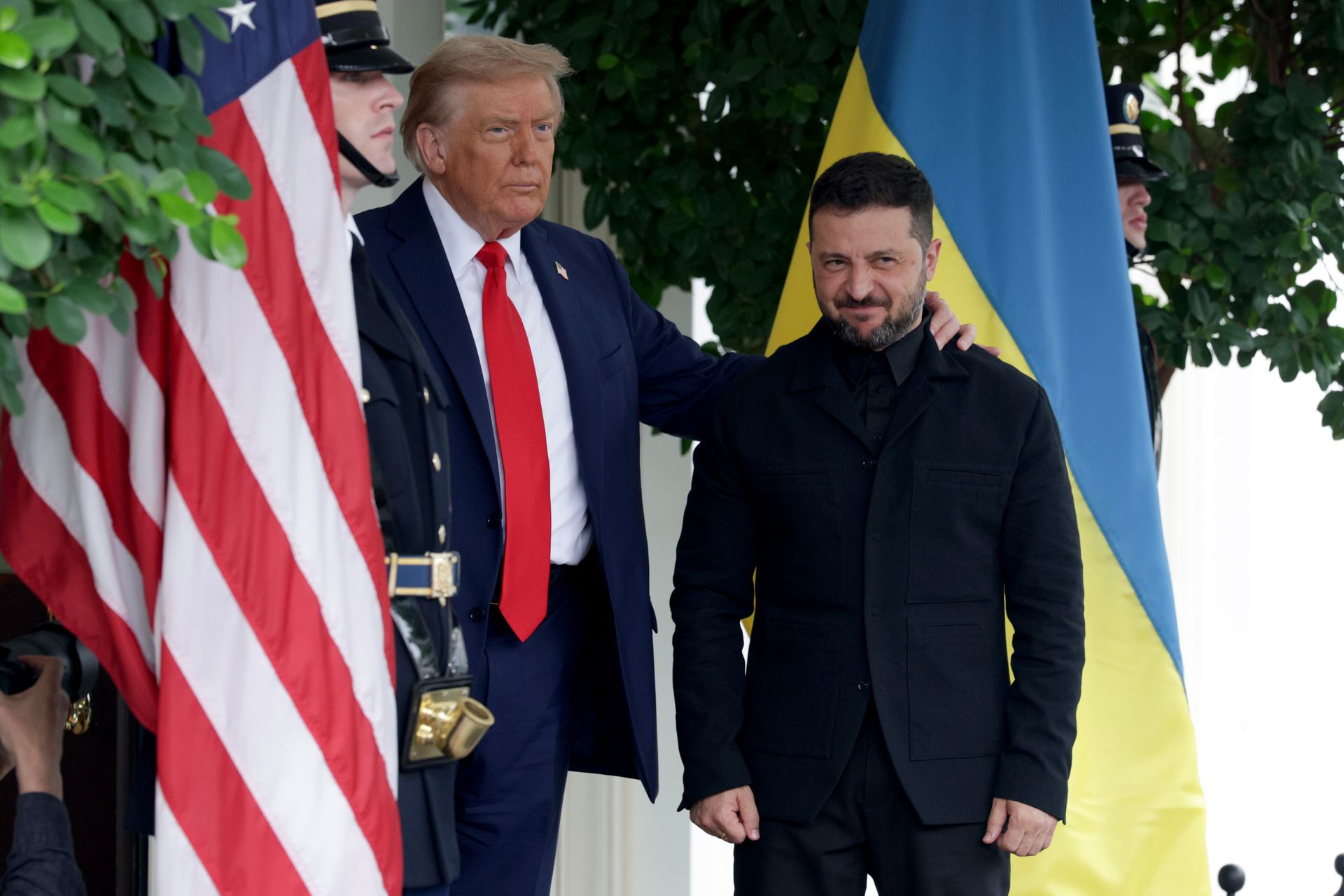Deadlines, delusions, and ballistic missiles: Trump's theater of peace talks with Putin

U.S. President Donald Trump during a cabinet meeting at the White House in Washington, D.C., U.S., on Tuesday, Aug. 26, 2025. (Aaron Schwartz/CNP/Bloomberg via Getty Images)
The U.S. and European leaders are continuing to discuss security guarantees for Ukraine, claiming that a breakthrough has been made in peace talks.
At the same time, Russia has been storming the front in Ukraine's east and bombarded Kyiv with ballistic missiles on Aug. 28, killing at least 23 people and damaging the EU delegation headquarters.
Experts agree that the so-called peace talks are a farce, with no party expecting any meaningful results.
The core issue appears to be that both U.S. President Donald Trump and the EU are overlooking a fundamental reality — Russian President Vladimir Putin is unwilling to make any compromise with Ukraine.
"Putin will not agree to any meaningful compromises with Ukraine," Ryhor Nizhnikau, a Russia expert at the Finnish Institute of International Affairs, told the Kyiv Independent.
"Putin offers Kyiv two options: to agree to his political demands and turn into another Belarus — with a puppet regime and full-scale Russification, or be militarily defeated and annexed piece by piece."
Russia wants Ukraine to lose
Since the start of Russia's all-out war, it has been clear — Moscow wants Ukraine under its control. In late 2022, it formalized its territorial demands as well.
The Kremlin has demanded that Ukraine recognize its territorial ambitions.
Russia illegally annexed Ukraine's Crimea peninsula in 2014. The Kremlin also announced the illegal annexation of Ukraine's Kherson, Zaporizhzhia, Donetsk, and Luhansk oblasts in 2022 despite only partially controlling them.
Ukrainian public opinion is firmly against recognizing any of the illegal annexations de jure.
As many as 68% of Ukrainians were against recognizing any Ukrainian territories as Russian de jure, and only 25% were ready to do so, according to a poll conducted by the Kyiv International Institute of Sociology from May to June.
Putin has also demonstrated that he will not cancel any of the illegal annexations as part of a peace deal with Ukraine.
"Any compromise concerning the de jure recognition of the (occupied) territories is a political suicide for any (Ukrainian) leader," Oleksandr Kraiev, head of the North America program at the Ukrainian Prism think-tank, told the Kyiv Independent.

From the moral standpoint, the recognition of any of these territories as Russian would legitimize the Kremlin's war of aggression and be tantamount to Ukraine's surrender.
But even from the pragmatic viewpoint, Ukraine has little to gain from such recognition, analysts say. Without iron-clad security guarantees such as NATO membership, it is unlikely to bring about stable peace and will just encourage further Russian aggression.
"(A territorial settlement) is highly unlikely," Nizhnikau said.
"Ukraine can accept a painful deal only if the West offers credible security guarantees that will deter any future Russian aggression. The U.S. and Europe cannot offer that. Hence, Ukraine cannot agree to any concessions de facto or de jure because it makes no sense and is suicidal — it will undermine the war effort and the political stability of the government."
Rhetoric on security guarantees
Another obstacle to peace is that Putin is highly unlikely to agree to any meaningful security guarantees for Ukraine.
Trump's Special Envoy Steve Witkoff has claimed that a NATO Article 5-style security guarantee for Ukraine was being discussed.
An Article 5 guarantee would require allies to defend Ukraine with armed force in case of renewed Russian aggression.
Analysts say that this is not realistic because Russia has opposed such strong guarantees. Furthermore, Western allies themselves have been trying to avoid a conventional or nuclear war with Russia.
The Kremlin has also categorically rejected potential NATO membership for Ukraine, and Trump has agreed with this Russian demand.
Moreover, Russia has repeatedly rejected proposals to send Western peacekeeping troops to Ukraine.

On Aug. 20, Dmitry Medvedev, Russia's flamboyant ex-president and deputy head of its Security Council, called French President Emmanuel Macron a "brainless Gallic rooster" and added that Russia would not accept proposals to send any troops from NATO member states to Ukraine as part of security guarantees.
Russian Foreign Minister Sergei Lavrov also said on Aug. 21 that the presence of foreign troops in Ukraine was unacceptable to Moscow.
Russia has also opposed another essential security guarantee — Western military aid and a strong Ukrainian army.
Putin said in March that Russia would accept a 30-day ceasefire only if there is a ban on Ukrainian mobilization and training of troops and a halt on Western military aid for Kyiv.
Another Russian demand is the imposition of limits on the size and capabilities of Ukraine's armed forces.
Jenny Mathers, a lecturer in international politics at the U.K.'s Aberystwyth University, argued that Russia would only accept guarantees "that give Russia a role and/or a veto."
"But the bigger question is whether Ukraine's international allies will allow Russia to determine the nature of the security guarantees that they provide to Ukraine," she added.
Nizhnikau also said that "Russia will not accept any meaningful security guarantees from the West."
"They will oppose any Western military presence in Ukraine or even (Ukraine's) political integration (into the EU) at any cost," he said. "Their ideal version is a multi-state security consortium with a narrow mandate, in which Moscow will have a veto right allowing it to re-launch its aggression at any time."
Putin is playing Trump
A major reason for the lack of progress is Trump's reluctance or outright failure to understand how to deal with Putin, experts say.
He has consistently refused to penalize and sanction Russia enough to pressure it into a deal to end the war.
Trump has also constantly vacillated between appeasing the Kremlin and threatening to impose sanctions or tariffs to make Russia agree to a deal.
But analysts say it's the actions, not the rhetoric, that matter.
Trump has introduced some limited measures intended to pressure Russia to end the war.
After halting U.S. military aid for Ukraine twice, in July Trump announced an initiative under which other NATO members would purchase U.S.-made weapons for Ukraine.
In early August, Trump also imposed a 25% tariff on India over its purchases of Russian oil. The tariff took effect on Aug. 27.
"It isn't completely clear that it will deter the Indians from continuing to buy energy from Russia," Mathers said. "Similarly, agreeing to sell weapons to Ukraine can be reversed or watered down."
Moreover, Trump has failed to impose a tariff on China, another big buyer of Russian oil, and effectively scrapped a Congressional bill that would impose 100% tariffs on countries that buy Russian oil and other products.
The situation further deteriorated when Trump again delayed decisions on sanctions and tariffs targeting Russia and its trade partners after meeting Putin on Aug. 15.
The Kremlin appears to have realized that it has nothing to fear from Trump.
"Trump is fascinated with Putin and admires him, and what Trump imagines is Putin's unlimited power and ability to do whatever he wants and suffer no consequences," Mathers said. "Think about how hard (Ukrainian President Volodymyr) Zelensky and Western leaders have to work to get Trump to move even a little bit towards support for Ukraine. But all that work can be undone with a phone call with Putin or, as we saw recently, a personal meeting."

Nizhnikau said that Trump had achieved exactly the opposite of a breakthrough in peace talks.
"Russia has only been further encouraged because its approach is working," he said. "So far, the main result of the two summits is that Trump again conceded to Putin (to pursue a comprehensive peace deal instead of the ceasefire), rejected any pressure on Moscow, and showed his unwillingness to escalate with Moscow and Beijing. Under such an approach, Moscow is even less likely to compromise than before."
Putin's procrastination tactics
Once again, Trump has accepted Putin's tactics of delaying peace negotiations while continuing to kill Ukrainians and destroying Ukrainian cities.
After missing several "deadlines" imposed on Russia to end the war, Trump said again on Aug. 21 that, if there is no progress in peace talks within two weeks, he would "take a different tack."
"Obviously, his many 'deadlines' mean nothing to him," Richard Betts, professor emeritus of war and peace studies at Columbia University, told the Kyiv Independent. "So far, whenever he has tilted in favor of Ukraine, he has subsequently reversed himself after talking to Putin."
Analysts say that Putin does not want any realistic peace deal — and the negotiations are a smokescreen for Russia to be allowed to continue the war.
"At the moment, the status quo (pursuing the war at the current level) works for Putin," Mathers said. "If he were suddenly able to get a deal that gives him most or all of what he wants, then great — he would probably take that, regroup and rebuild for a while, and then try again in a few years to get more. But if no deal is struck, then he probably thinks he can carry on with the war long enough to wear down the Ukrainians and outlast Ukraine's international supporters."
Nizhnikau said that "if Ukraine capitulates diplomatically, Putin will be happy."
"If it does not, Russia will continue to imitate peace talks as long as Trump wishes," he added.
"However, these diplomatic games with Trump have already played into Russia's favor so far. Trump's wish to position himself as a 'mediator' and his self-restraint in providing Ukraine with necessary support in order to maintain the 'peace process' facilitate Russia's advances on the battlefield. So as long as he does just that, Russia is more than happy to 'negotiate peace' until the end of Trump's presidency."
Initially Trump demanded a ceasefire before peace negotiations. But now Putin has persuaded him that Ukraine and Russia should agree on a peace deal without any preceding ceasefire.
Since a peace deal is highly unlikely in any foreseeable future, Trump's policy will just lead to the continuation of the war, experts argue.
Trump has claimed that a meeting between Putin and Zelensky will take place soon but no agreement has been reached on it yet. Analysts say that such a meeting is unlikely to be held in the foreseeable future.
"Putin wants to avoid giving Zelensky the status of an equal and of a legitimate leader," Mathers said. "The only condition under which Putin would be willing to meet Zelensky is for a ceremonial signing of an agreement that gives Putin what he wants, or enough of what he wants to spin it as a victory."
What's the solution?
The only way to end the war — temporarily or permanently — is to put devastating pressure on Russia by imposing the most severe sanctions and tariffs and dramatically increasing arms supplies to Ukraine, analysts say.
Only then Putin may think that he has nothing to gain from continuing the war, according to experts. He might then agree to a compromise — such as freezing the front line without any humiliating conditions for Ukraine.
"Most (security experts) think that the path to a deal requires consistent U.S. support for Ukraine and Europe so that Moscow realizes it cannot achieve its maximal war aim," William Wohlforth, a professor focusing on international relations at Dartmouth College, told the Kyiv Independent. "Given all of this, most experts on international security assess Trump's strategy toward the conflict as incoherent and poorly coordinated."
Mathers said that Putin may agree to stop the war only "if Russia's progress stops or reverses, and if Russia is struggling to continue to fund the war and is losing the support of allies."
"Now Putin has no incentives to agree to a ceasefire or peace deal," John Herbst, an expert at the Atlantic Council and a former U.S. ambassador to Ukraine, told the Kyiv Independent.
"(To agree to a deal), Putin needs to worry about his ability to wage the war. For that, many months of sustained pressure (on Russia) are necessary."
read also
